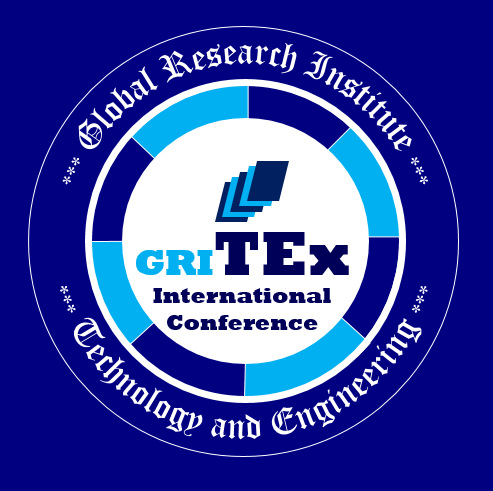
Global Research Institute of
Technology and Engineering
Home | About GRITEx | Research | Education | Publication | Contact Us

Global Research Institute of
Technology and Engineering
Home | About GRITEx | Research | Education | Publication | Contact Us

The book focuses on using biosensors in automated disease detection and drug delivery to alter healthcare and improve patient outcomes. It describes how biosensors can be used to detect diseases like cancer, infectious diseases, cardiovascular disease, respiratory disease, metabolic disease, autoimmune disease, and uncommon disorders. It also encompasses drug delivery biosensors such as implantable biosensors, wearable biosensors, smart pills, and biosensors for personalized medicine. Researchers, doctors, and students can obtain a better grasp of the potential of biosensors to revolutionize healthcare by reading this book.
This hand book targets a mixed audience of students, engineers, scholars, researchers, academics and professionals who are learning, researching, and working in the field of workforce, human resource, training, requirement, headhunting, outsourcing, and manpower consultant services for different cultures and industries in the era of digital healthcare ecosystem.
We really believe that the technologies and applications of the AI-Integrated Biosensors and Technologies for Automated Disease Detection and Drug Delivery book will favor the people's aspirations.
The goals of this book will share with readers the modern models, emerging technologies, designs, frameworks, theories, practices, and sustainable approaches to design, implement, and maintain the challenging issues associated with the leveraging of technologies related to applications of Artificial Intelligence (AI), Internet of Things (IoT), Biosensors and Technologies for Automated Disease Detection and Drug Delivery in the era of digital healthcare. You are invited to contribute chapters and papers and the scope of the book includes but is not limited to the following topics:
All Taylor & Francis (T & F) publications have a direct feed (indexed) to WoS and Scopus and newly submitted contents are submitted monthly. At present, WoS contains 10,000+ books and T & F in the top ten contributing publishers.
AI-Integrated Biosensors and Technologies for Automated Disease Detection and Drug Delivery: book proceedings will be published by CRC Press, Taylor & Francis Group, Florida, USA
All questions about submissions should be emailed to
